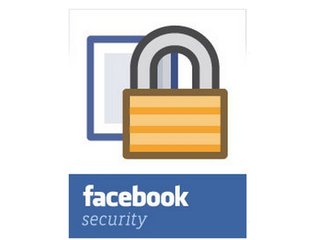
China and Facebook differ on security
China increases censorship while Facebook ups user security for Cyber Security Awareness Month

As Halloween inches closer, so does the close of the National Cyber Security Awareness Month. Did you even know?
This was the seventh annual National Cyber Security Awareness Month and, fittingly, China is vowing to intensify its controls on social media and instant messaging services.
Not to be deterred by the fact that the awareness month is national in the United States and meant to promote user security, not ruling government security, China is responding to the growth of microblogging activity and social networks.
A document from that government said it would "strengthen guidance and administration of social Internet services and instant communications tools, and regulate the orderly dissemination of information" and "apply the law to sternly punish the dissemination of harmful information."
With more than 450 million users, China comprises the largest Internet population and is poised to continue growing at a faster rate than any other population.
The most widely used microblogging site in China is called Weibo and, similar to Twitter, allows up to 140 characters to disseminate information to tens of millions each day. This extreme stance on cyber communication is a clear reverse-mentality to the increase of platforms and access going on in the United States.
Despite the extreme control and regulation, which has kept search-engine giant Google out of the market (since the company disagrees with the practices and ethics required from the government) there have been talks between Facebook and China but no official arrangments have been made as of yet. While embarking in the Chineses market would be an instant boost in the reach and usership numbers of Facebook, it could also result in negative publicity since entering the market would require censorship and other adjustments to the platform.
In a measure to increase user security while broadcasting information, Facebook held several discussions this month to help users understand what features on the social site could help them increase the level of security is enlisted on their profiles.

Most recently, the friending network is rolling out a new way to log in if you get locked out of your account. The company compares this to keeping spare keys with a neighbor or friend. Facebook will allow you to choose three to five friends that, if you are locked out, will be messaged your log-in information and then you can reach out to them. For this function, I would suggest picking close friends that you actually have their email or phone number since, obviously, they can't relay the information via Facebook.
Another additional level of security Facebook wants users to take advantage of is the use of unique passwords for different third-party applications. This function is currently in the testing phase but would ideally allow a user to scroll through their Facebook security settings and set different passwords for each application and Facebook will record it in the settings so you don't have to remember it.
This application setting sounds like a pain but may be worth the extra effort since there are so many third-party applications that may not adhere strictly to security precautions like larger entities are held to.
With as much scrutiny and flack is given to Facebook, a number of new and innovative security measures have been added to the site and, in honor of Cyber Security Month, Facebook is showing an information graphic detailing the biggest security features that users should be aware of -- and reminding users just how little spam they deal with compared to their email interations.

Image Sources -- Red-Pepper.co.za and Facebook
Related News


Facebook trying out new security features

